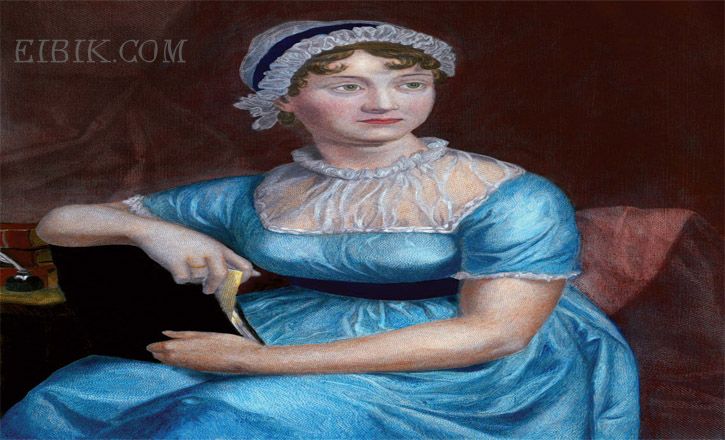Pride and Prejudice
Pride and Prejudice is a courtesy novel written by Jane Austen in 1813. The novel follows the development of the character of Elizabeth Bennett, the book’s dynamic protagonist.
She quickly learns about the consequences of judgment and appreciates the difference between supernatural righteousness and actual righteousness.
Its sense of humor lies in the honest image of decency, education, marriage and money in the Regency era in Great Britain. Mr. Bennett of the Longburn Estate has five daughters, but his property is involved and can only go to male heirs. His wife also has no inheritance, so his family will be destitute in his death.
So at least one of the girls must get married well to support each other. It’s an inspiration that drives the plot. The novel revolves around the importance of marrying for love, not for money or social prestige, despite the communal pressure to create rich matches.
Pride and Prejudice have regularly appeared at the top of the list of “most favorite books” among literary scholars and readers. With over 20 million copies sold, it has become one of the most popular novels in English literature and has inspired many modern literature derivatives.
For more than a century, dramatic adaptations, re-impressions, unofficial sequels, film and TV versions of Pride and Prejudice have portrayed the novel’s memorable character and theme, which has reached viewers. The 2005 film Pride and Prejudice is the most recent film adaptation that the book presents intimately.
Table of Contents
Pride and Prejudice Summary
Within a ball, the wealthy and newcomer Charles Bingley became instantly interested in the beautiful and shy Jane’s older Bennett daughter. The confrontation between his friends Darcy and Elizabeth is less fancy. Although Austen shows their curiosity towards each other, he contrasts the conference of first impressions: Darcy’s loneliness holds the position, fate, and superstition against Elizabeth’s family’s social inferiority, and Elizabeth is equally expelled by the pride of self-respect and by Darcy’s snobbery.
Stylish Collins later arrives, hoping to marry one of Bennett’s sisters. However, Elizabeth rejected his marriage proposal and instead engaged in a relationship with her friend Charlotte Lucas. During this time, Elizabeth’s beautiful George Wickham became a military officer. The two have a mutual attraction and he informs her that Darcy has denied him his inheritance.
After Bingley’s sudden departure for London, Elizabeth’s dislike for Darcy grew as she became convinced that he was discouraging Bingley’s relationship with Jane. Darcy, however, has become increasingly interested in admiring Elizabeth for her intelligence and vitality.
While looking at the now married Charlotte, Elizabeth sees Darcy, who proves her love for him and offers. Surprised, Elizabeth rejects his offer, and when Darcy demands an explanation, she accuses Jane and Bingley of breaking up. Darcy later wrote a letter to Elizabeth explaining that he had separated the couple mainly because Jane did not believe that Jane had returned Bingley’s affection.
He further reveals that Wickham tried to marry Darcy’s then-15-year-old sister to inherit her fortune after spreading his inheritance. With these revelations, Elizabeth Darcy began to see in a new light.
Shortly afterward, Bennett’s younger sister, Lydia Wickham, moved in with him. The news has been met with great concern by Elizabeth, as this reprehensible issue – which is unlikely to end in marriage – could tarnish the other Bennett’s sister’s reputation.
When she told Darcy that he had persuaded Wickham to marry Leah, he offered her money. Despite Darcy trying to keep his intervention a secret, Elizabeth learned his activities.
Analysis
The work, which is the title of Austen’s first impression, is the second of four novels published in Austin’s lifetime. Although Pride and Prejudice have been criticized for their lack of historical context, the way Aston was bound is an unambiguous picture of the social world.
Events outside of it rarely infiltrate the existence of its characters in social arms. He portrayed that world with unbeatable precision and satire in all its narrow-mindedness and superstition. At the same time, he placed at the center of it, as both the lead actor and the most perceptive critic, a character so well thought out and presented that the reader could not grasp his story and wished for its pleasing format.
Towards the end, Austin’s novel was popular mainly because of Elizabeth – who is Austen’s own choice among all his heroines – and because of the everlasting appeal of love stories to men and women alike with a well-known and potentially happy happiness.
Pride and Prejudice inspired various stage, film and television productions. One of its most notable adaptations is the 1995 TV miniseries starring Jennifer Ahel (Elizabeth) and Colin Faith (Darcy).

